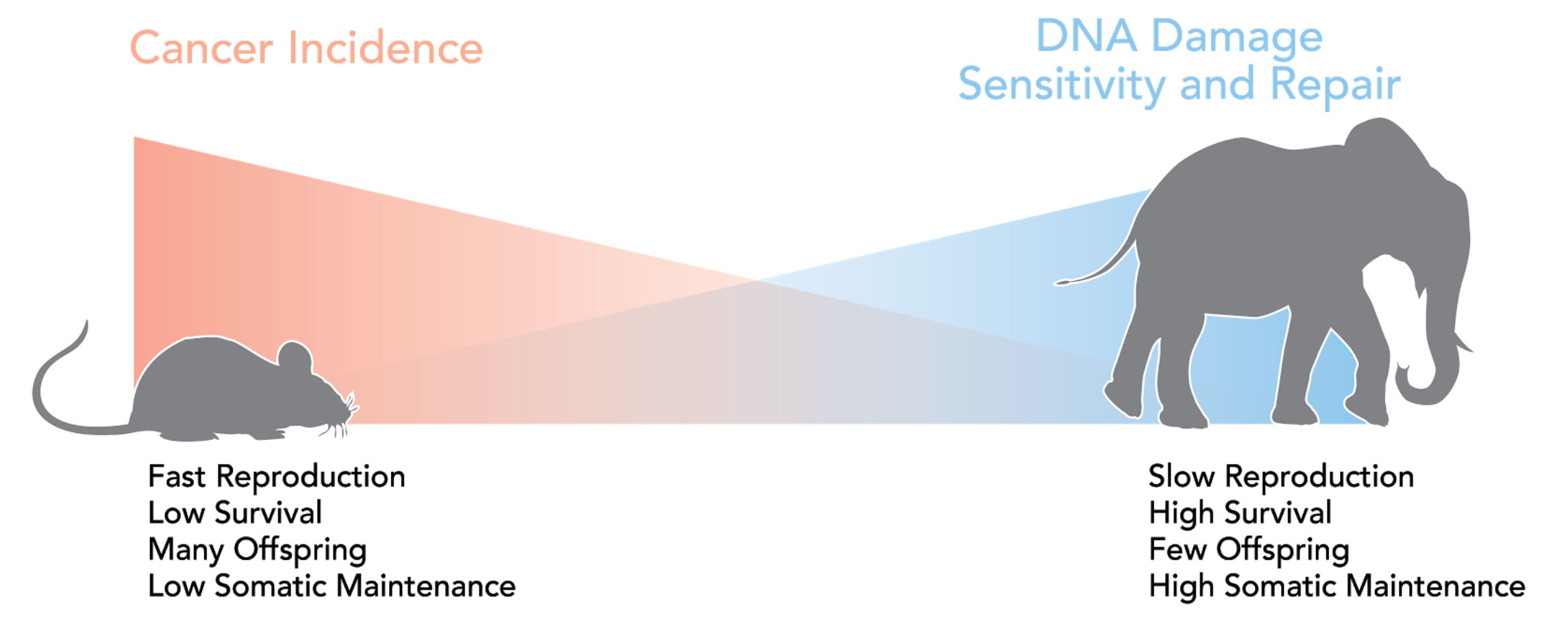This is Project 1 in our overall research scheme.
Cancer has been an important selective pressure for organisms and a great deal of variation in cancer rates exists across species. Why do species vary in their susceptibility to cancer and what mechanisms are responsible for this? Life history theory (LHT) may provide an explanation for these differences. LHT is an evolutionary and ecological approach that focuses on organism-level trade-offs between growth, maintenance and reproduction. Organisms can either live fast and die young, or live slowly and die old, or anywhere in between. Cancer suppression is an important component of building a robust body that can live into old age. Our previous research shows that lower levels of cancer defense can be favored by natural selection when there are trade-offs with traits such as reproductive competitiveness, body size, and longevity. Now we are using real life history parameters to predict cancer rates across animals and test the predictions with a highly curated comparative oncology dataset, including animals from major orders of reptiles, birds, fish, amphibians and mammals. Additionally, we are analyzing the genomes of mammalian species to identify patterns of selection and mutation in tumor suppressor genes. Our approach combines mathematical modeling, comparative techniques, evolutionary theory, genomic sequencing, molecular evolution, and phylogenetics to study cancer suppression. We are particularly interested in identifying cancer resistant species, discovering how they prevent cancer, and translating that information into better cancer prevention for humans.

Figure Text: Life history strategies fall on a continuum from fast to slow, and organisms with a fast life history strategy allocate less energy to somatic maintenance (i.e. cancer defense), while slow life history organism have higher investment in cancer defenses, such as DNA damage sensitivity
Impact: More cancers could be prevented if we better understand the evolution of cancer defense mechanisms and other biological parameters that make humans more susceptible than other species to cancer. We can leverage these findings to develop novel tools for prevention and clinical management of human cancers. Comparative oncology offers a unique opportunity to see how evolution has, over millions of years, led to both cancer defense mechanisms and why certain forms of susceptibility remain.
Organismal Evolution and Cancer Defenses
Investigators:
Amy Boddy (Project Leader)
Hanna Kokko (Project Leader)
Carlo Maley (Project Leader and Co-PI)
Athena Aktipis (Project Leader)
Robert Noble
Marc Tollis
Ashley Zehnder
Tara Harrison
Collaborator: